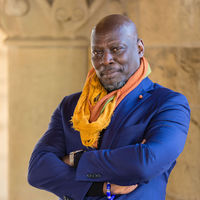Postcolonialism: Theory, Practice or Process?

This important book is a critical introduction to the rapidly expanding field of postcolonial studies. Adopting an interdisciplinary approach, the author draws on literary criticism, philosophy, anthropology, history and politics to develop a distinctive account of postcolonialism.
Quayson discusses key debates in the field, including the implications of various forms of interdisciplinarity for postcolonial studies, the relationship between indigenous knowledge and contemporary historiography, the links between postmodernism and postcolonialism and the insights of feminism for postcolonial theory. He explores the relevance of these debates for cultural, literary and political criticism. Throughout the text, he stresses the importance of seeing postcolonialism as a process of analysis which does not simply refer to another stage after colonialism, but to a continuing struggle against colonialism and its effects. He encourages the reader to think through the issues that are raised by postcolonial theory and to relate these to political practice today. This practical application of postcolonial theory allows the author to develop dynamic new perspectives on aspects of contemporary culture, history and literature. He discusses the work of Rushdie, Morrison, Achebe, Soyinka and Okri, amongst others; many of his examples are drawn from African cultures, an area which has been hitherto neglected by postcolonial theory. Quayson also develops postcolonial approaches to the literary canon, showing how this perspective can shed new light on some of the classical works of English literature, such as those of Shakespeare.
This book will be essential reading for students of literature, history, anthropology and cultural studies, as well as all those concerned with debates about postcolonial theory and its political functions.
About the Author
Ato Quayson is the Jean G. and Morris M. Doyle Professor in Interdisciplinary Studies and Professor of English. He studied for his undergraduate degree at the University of Ghana and took his Ph.D. from the University of Cambridge, after which he held a Junior Research Fellowship at Wolfson College, Oxford before returning to Cambridge to become Reader in Commonwealth and Postcolonial Literature in the Faculty of English from 1995-2005. He was also Director of the Centre for African Studies (1998-2005) and a Fellow of Pembroke College while at Cambridge (1995-2005). Prior to Stanford he was Professor of African and Postcolonial Literature at New York University (2017-2019) and Professor of English and inaugural Director of the Centre for Diaspora and Transnational Studies at the University of Toronto (2005-2017). In 2016 he was appointed University Professor at the University of Toronto, the highest distinction that the university can bestow.
Professor Quayson has published 6 monographs and 10 edited volumes. His monographs include Strategic Transformations in Nigerian Writing (1997), Postcolonialism: Theory, Practice, or Process? (2000), Calibrations: Reading for the Social (2003), and Aesthetic Nervousness: Disability and the Crisis of Representation (2007). Oxford Street, Accra: City Life and the Itineraries of Transnationalism (2014) was co-winner of the Urban History Association's 2015 Best Book Prize (non-North America) and was named in The Guardian as one of the 10 Best Books on Cities in 2014. His most recent book is Tragedy and Postcolonial Literature (Cambridge University Press, 2021), winner of the Warren-Brooks Prize in Literary Criticism for 2022. Edited volumes include Relocating Postcolonialism (with David Goldberg, 2001), African Literary Theory: An Anthology of Literary Criticism and Theory (with Tejumola Olaniyan, 2007), Fathers and Daughters: An Anthology of Exploration (2008), Labor Migration, Human Trafficking, and Multinational Corporations, (with Antonela Arhin, 2012), The Cambridge History of Postcolonial Literature, 2 volumes (2012), A Companion to Diaspora and Transnational Studies (with Girish Daswani, 2013), The Cambridge Companion to the Postcolonial Novel (2016), The Cambridge Companion to the City in World Literature (with Jini Kim Watson, 2023), and Decolonizing the English Literary Curriculum (with Ankhi Mukherjee, 2023). He also wrote a new Introduction and Notes to Nelson Mandela’s (2003). Works-in-progress include Accra Chic: A Locational History of Fashion in Accra (with Grace Tolequé; Intellect Books and Chicago University Press) and Exile and Diaspora in African Literature.
He curates Critic.Reading.Writing, a YouTube channel on which he discusses various topics in literature, urban studies and the humanities in general:https://www.youtube.com/channel/UCjoidh_R_bJCnXyKBkytP_g and is the host of Contours: The Cambridge Literary Studies Hour (https://www.cambridge.org/core/browse-subjects/literature/contours-the-cambridge-literary-studies-hour), where he holds dialogues with various scholars to address pressing issues, themes, and concepts in 21st century literary studies from medieval literature to the present day and from all areas of global literary studies from both the Northern and Southern hemispheres.
Professor Quayson has served as President of the African Studies Association (2019-2020) and is an elected Fellow of the Ghana Academy of Arts and Sciences (2006), the Royal Society of Canada (2013), the British Academy (2019), and of the American Academy of Arts and Sciences (2023).
